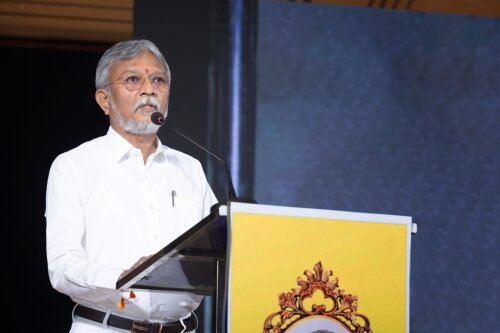Best Divorce & Separation Lawyers in Coimbatore
Share your needs with us, get contacted by law firms.
Free. Takes 2 min.
Free Guide to Hiring a Family Lawyer
List of the best lawyers in Coimbatore, India
India Divorce & Separation Legal Questions answered by Lawyers
Browse our 2 legal questions about Divorce & Separation in India and read the lawyer answers, or ask your own questions for free.
- Married life issue.
- How to get divorce. What is the criteria.
-
Lawyer answer by MAH&CO.
Thank you for your question.As an experienced family lawyer with decades of practice in divorce, khula, and marital dispute resolution, I can guide you through the legal process of obtaining a divorce in Pakistan. Divorce Procedure & Criteria (for Men):Under...
Read full answer - It is possible to do a marriage null and void?
- I’m French and live in France. I married with an Indian in Hathras in India. He lives in Delhi in Tagore garden. He cheated with me and he was interested by visa and money. He created a fake wedding card, made me sign some documents to get the registered marriage... Read more →
-
Lawyer answer by LAW CHAMBER OF ADVOCATE RAJVEER SINGH
BASED ON THE INFORMATION PROVIDED BY YOU, THIS MARRIAGE IS VOID AB INITIO AND IT CAN BE DECLARED VOID BY THE INDIAN FAMILY COURTAs you mentioned, since the marriage was conducted under the Hindu Marriage Act without a valid religious...
Read full answer
India Divorce & Separation Legal Articles
Browse our 1 legal article about Divorce & Separation in India written by expert lawyers.
- A Layman’s Guide to a Landmark Ruling on Rights of Divorced Muslim Women
- The Supreme Court of India, on 2 December 2025, delivered a judgment that carries deep significance for Muslim women across the country. The case, Rousanara Begum v. S.K. Salahuddin (2025 INSC 1375) SC Judgment of 2Dec2025, concerned a simple yet socially important question:When gifts such as cash, gold, or household... Read more →
About Divorce & Separation Law in Coimbatore, India
Divorce and separation refer to the legal processes by which a married couple decides to end their marriage or live separately. In Coimbatore, as in the rest of India, these laws are governed by personal laws applicable to individuals based on their religion, such as the Hindu Marriage Act, Muslim Personal Law, Christian Marriage Act, and Special Marriage Act. The process is managed by the local Family Courts, and the laws exist to handle not only the dissolution of marriage but also related issues like child custody, maintenance/alimony, and division of property.
Why You May Need a Lawyer
Many people choose to seek legal help during divorce or separation for the following reasons:
Local Laws Overview
In Coimbatore, divorce and separation cases are primarily governed by:
Key issues addressed include:
- Grounds for Divorce: Includes cruelty, adultery, desertion, conversion to another religion, mental disorder, and mutual consent.
- Separation: Legal separation is available for couples who do not wish for divorce but want to live apart with legal protection.
- Child Custody: The welfare of the child is the paramount consideration, and custody may be granted to either parent or jointly.
- Alimony and Maintenance: Depending on the earning capacity and needs, either spouse may be ordered to pay maintenance.
- Property Division: Property acquired during marriage is divided; however, there is no fixed rule-division is based on contribution and requirements.
- Family Courts: Dedicated Family Courts in Coimbatore handle all aspects of divorce, ensuring sensitive and confidential hearings.
Frequently Asked Questions
What are the main grounds for seeking divorce in Coimbatore?
The main grounds include cruelty, adultery, desertion, conversion to another religion, mental illness, venereal disease, and mutual consent. Religious and personal laws determine specific applicability.
How long does a mutual consent divorce take in Coimbatore?
Typically, mutual consent divorce takes six to eighteen months. There is a mandatory cooling-off period of at least six months after the first motion, which can sometimes be waived in special cases.
Is judicial separation different from divorce?
Yes. Judicial separation allows spouses to live apart without ending the marriage, offering legal rights and obligations similar to those in divorce proceedings. It can sometimes be a precursor to divorce.
How is child custody decided?
The welfare of the child is the main consideration. Courts consider the wishes of the child, the financial and emotional capability of parents, and other surrounding factors before granting custody.
Can one spouse refuse a mutual consent divorce?
Yes. Mutual consent divorce requires both spouses to agree throughout the process. If one withdraws consent, the process cannot continue as a mutual consent divorce.
What is the difference between maintenance and alimony?
Maintenance refers to financial support during and after the divorce proceedings, while alimony is generally a lump sum or periodic payment granted after the divorce is finalized.
Do I have to appear in court for a divorce case?
In most cases, the parties must appear at least once in court for recording of statements and final orders, even in mutual consent divorces. Online hearings are also being adopted for certain proceedings.
Can property be sold before the divorce is finalized?
Generally, selling jointly owned property without mutual agreement is not advisable. The court may pass orders to prevent alienation of property during divorce proceedings.
Are out-of-court settlements allowed?
Yes, many divorce-related issues like maintenance, custody, and property can be mutually settled outside the court and submitted before the judge for approval.
What documents are required to file for divorce?
Required documents generally include marriage certificate, address proof, identity proof, passport-size photographs, details of children (if any), evidence supporting the divorce ground, and financial documents for maintenance claims.
Additional Resources
If you need more information or assistance, here are some resources you can approach in Coimbatore:
- Family Courts, Coimbatore District Court: Handles all family law matters including divorce, maintenance, and custody.
- Bar Association, Coimbatore: Can help you find qualified family lawyers in the region.
- District Legal Services Authority (DLSA), Coimbatore: Offers free legal aid and counseling to eligible individuals.
- Women’s Welfare Associations and NGOs: Provide counseling, support, and sometimes mediation services for family disputes.
- Police Stations: The All Women Police Stations in Coimbatore provide assistance in cases involving domestic violence and dowry harassment.
- State Legal Services Authority, Tamil Nadu: Information on legal aid, rights, and procedures for divorce and separation.
Next Steps
If you are considering divorce or separation in Coimbatore, here is how you can proceed:
- Consider initial counseling or mediation to explore options for reconciliation.
- Gather all relevant documents, including marriage certificates, address proof, bank statements, and records related to children or property.
- Contact a qualified family lawyer in Coimbatore who can guide you through your specific situation, explain local laws, and advise on the best course of action.
- If financial hardship exists, inquire about free or subsidized legal aid from the District Legal Services Authority.
- Be prepared for court appearances and ensure compliance with all notices and orders issued by the court.
- Maintain a record of all proceedings and communications for future reference.
Lawzana helps you find the best lawyers and law firms in Coimbatore through a curated and pre-screened list of qualified legal professionals. Our platform offers rankings and detailed profiles of attorneys and law firms, allowing you to compare based on practice areas, including Divorce & Separation, experience, and client feedback.
Each profile includes a description of the firm's areas of practice, client reviews, team members and partners, year of establishment, spoken languages, office locations, contact information, social media presence, and any published articles or resources. Most firms on our platform speak English and are experienced in both local and international legal matters.
Get a quote from top-rated law firms in Coimbatore, India — quickly, securely, and without unnecessary hassle.
Disclaimer:
The information provided on this page is for general informational purposes only and does not constitute legal advice. While we strive to ensure the accuracy and relevance of the content, legal information may change over time, and interpretations of the law can vary. You should always consult with a qualified legal professional for advice specific to your situation.
We disclaim all liability for actions taken or not taken based on the content of this page. If you believe any information is incorrect or outdated, please contact us, and we will review and update it where appropriate.












